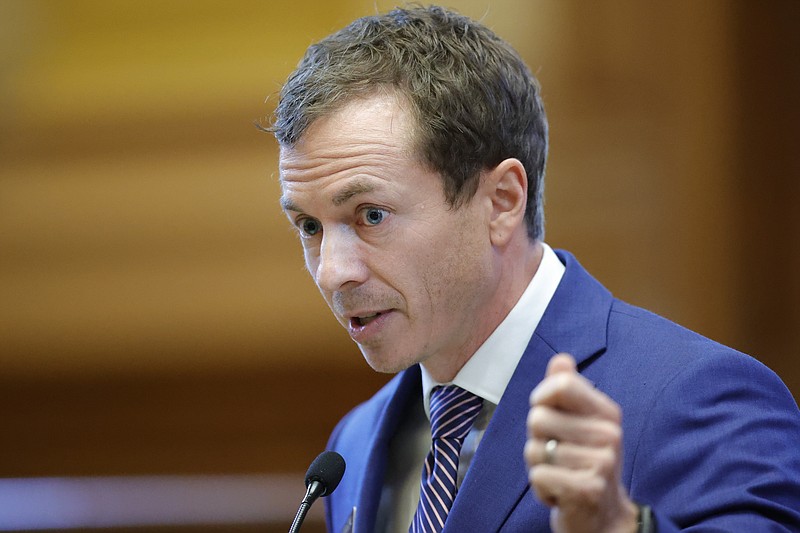ATLANTA (AP) — Georgia conservatives are getting closer to a long-held goal of broadening state funding for private school tuition and home schooling, with a House committee passing a bill Tuesday that would give $6,500 educational vouchers to students who would otherwise attend low-performing schools.
The House Education Committee passed a revised version of Senate Bill 233 on a split voice vote, sending it to the full House for more action.
Voucher bills have historically gotten cool receptions in the House, but Republican House Speaker Pro Tem Jan Jones, of Milton, a longtime proponent, has been in the forefront of this year's push. The second-ranking member of the House, Jones helped clear the way for Republican Jon Burns, of Newington, to become speaker earlier this year.
The Georgia push is part of a nationwide GOP wave for what supporters call education savings accounts following the COVID-19 pandemic and amid contentious culture war fights over what children should learn in public schools.
Supporters argue that the vouchers for private school tuition, home schooling supplies, therapy, tutoring or even early college courses for high school students would help students who aren't well-served by poor-performing schools.
"This will be an excellent investment by the state to have improved outcomes," said Republican Sen. Greg Dolezal, of Cumming, who is sponsoring the measure.
Opponents say the effort will divert needed funding from public schools and will subsidize institutions that discriminate against people who don't share their social and religious views. They also argue that even at $6,500, boosted from the $6,000 passed by the Senate, that poor recipients won't get enough money to pay private school tuition, effectively creating a subsidy for wealthier parents.
"We have to look at what is good for the whole of Georgia," said Rep. Miriam Paris, a Macon Democrat. "The majority of children are going to public school, so we are essentially defunding education by continuing to pass these voucher bills."
The program would only be funded in years in which the state fully funds its $12.5 billion K-12 funding formula. Local public school districts would keep their property tax dollars allocated for public education.
Only children who live in the attendance zones served by the schools scoring in the lowest 25% of the state's academic rating system could benefit under the Georgia measure, and the House bill was further amended Monday to say a student must have been enrolled in a public school for more than a semester before their parents could apply.
The bill would be funded annually in an amount to be determined by lawmakers, likely setting up a yearly fight over funding. If even 1% of Georgia's 1.75 million public school students were given money, that would cost more than $110 million a year.
If there isn't enough money to meet demand, the state would prioritize giving the $6,500 to students with certain educational disadvantages.
Georgia already has programs giving vouchers for special education students in private schools and $120 million a year in state income tax credits for donors to private school scholarship funds. An effort to increase the tax credits to $130 million appeared to stall in a committee Monday.
One of the big criticisms of Georgia's current school choice programs is that it's impossible to tell how beneficiaries are doing academically. But the new bill mandates that children who use money to enroll in private schools would have to take Georgia's standardized test in third through eighth grade and once in high school, just like public school students.
Republican Rep. Todd Jones, of Cumming, said that would provide a "benchmark" allowing comparisons between the academic performances. In other years when state tests aren't given, as well as for all years for those who are home-schooled, students would have to take another national standardized test approved by the state.
Proponents have traditionally resisted having students take state tests because schools have to teach along the lines of the state academic standards for students to perform well, limiting private schools' ability to choose their own curriculum.
